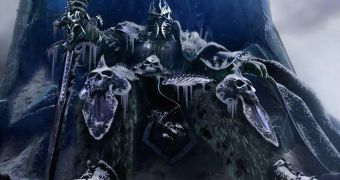Torchlight has been one of the unexpected successes of 2009. People have liked it for a lot of reasons, one of the more prominent being the fact that it offers a Diablo-like fix even as players are getting tired of waiting for the third game in the series, but all reviews of the game talked at length about the “loot” mechanics, which reward players with a variety of equipment that they can equip as they go deeper and deeper underground killing monsters.
Jamie Madigan, a gamer who has a Ph.D. in psychology specializing in Organizational Psychology from the University of Missouri St. Louis, says that the loot mechanics that attract so many to games as different as Borderlands, the shooter from Gearbox, and World of Warcraft , the MMO from Blizzard, are rooted deep in the make up of our brains.
It's all linked to dopamine detecting neurons and the ability of humans to detect patterns. Dopamine is a neurotransmitter linked to feeling good, which is released when one enjoys themselves. But dopamine neurons also have the capacity of actually firing ahead of the pleasure provoking act as the brain creates patterns related to actions.
As Medigan says, “The real key is that while dopamine neurons fire once your brain has figured out how to predict an event, they really go nuts when an unexpected, unpredicted gush of dopamine shows up, giving you an even bigger rush. It’s like DUDE! UNEXPECTED HOT POCKET! Again, I’m guessing that this is an evolutionary advantage that causes us to obsess over unexpected pleasures and try to predict them so that we can get more of them.”
The possibility of an unexpected pleasure, in this case surprising loot, which has a chance of arriving with every enemy killed is what makes some videogames so attractive to players.

 14 DAY TRIAL //
14 DAY TRIAL //